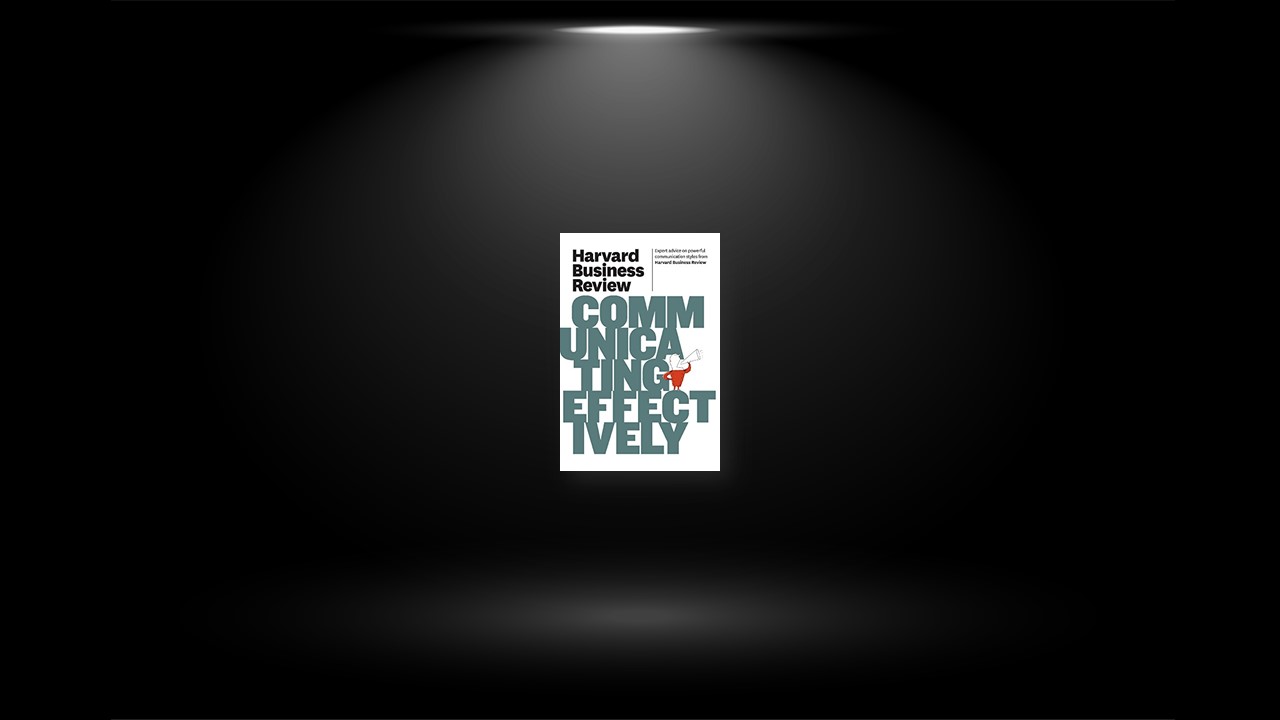Harnessing the Science of Persuasion
A LUCKY FEW HAVE IT; most of us do not. A handful of gifted “naturals” simply know how to capture an audience, sway the undecided, and convert the opposition. Watching these masters of persuasion work their magic is at once impressive and frustrating. What’s impressive is not just the easy way they use charisma and eloquence to convince others to do as they ask. It’s also how eager those others are to do what’s requested of them, as if the persuasion itself were a favor they couldn’t wait to repay.
The frustrating part of the experience is that these born persuaders are often unable to account for their remarkable skill or pass it on to others. Their way with people is an art, and artists as a rule are far better at doing than at explaining. Most of them can’t offer much help to those of us who possess no more than the ordinary quotient of charisma and eloquence but who still have to wrestle with leadership’s fundamental challenge: getting things done through others.
The Principle of Liking
People like those who like them. Uncover real similarities and offer genuine praise.
The retailing phenomenon known as the Tupperware party is a vivid illustration of this principle in action. The demonstration party for Tupperware products is hosted by an individual, almost always a woman, who invites to her home an array of friends, neighbors, and relatives. The guests’ affection for their hostess predisposes them to buy from her, a dynamic that was confirmed by a 1990 study of purchase decisions made at demonstration parties. The researchers, Jonathan Frenzen and Harry Davis, writing in the Journal of Consumer Research, found that the guests’ fondness for their hostess weighed twice as heavily in their purchase decisions as their regard for the products they bought. So when guests at a Tupperware party buy something, they aren’t just buying to please themselves. They’re buying to please their hostess as well.
The Principle of Reciprocity
People repay in kind. Give what you want to receive.
Praise is likely to have a warming and softening effect on Dan because, ornery as he is, he is still human and subject to the universal human tendency to treat people the way they treat him. If you have ever caught yourself smiling at a coworker just because he or she smiled first, you know how this principle works.
Charities rely on reciprocity to help them raise funds. For years, for instance, the Disabled American Veterans organization, using only a well-crafted fund-raising letter, garnered a very respectable 18% rate of response to its appeals. But when the group started enclosing a small gift in the envelope, the response rate nearly doubled to 35%. The gift—personalized address labels—was extremely modest, but it wasn’t what prospective donors received that made the difference. It was that they had gotten anything at all.
The Principle of Social Proof
People follow the lead of similar others. Use peer power whenever it’s available.
Social creatures that they are, human beings rely heavily on the people around them for cues on how to think, feel, and act. We know this intuitively, but intuition has also been confirmed by experiments, such as the one first described in 1982 in the Journal of Applied Psychology. A group of researchers went door-to-door in Columbia, South Carolina, soliciting donations for a charity campaign and displaying a list of neighborhood residents who had already donated to the cause. The researchers found that the longer the donor list was, the more likely those solicited would be to donate as well.
To the people being solicited, the friends’ and neighbors’ names on the list were a form of social evidence about how they should respond. But the evidence would not have been nearly as compelling had the names been those of random strangers. In an experiment from the 1960s, first described in the Journal of Personality and Social Psychology, residents of New York City were asked to return a lost wallet to its owner. They were highly likely to attempt to return the wallet when they learned that another New Yorker had previously attempted to do so. But learning that someone from a foreign country had tried to return the wallet didn’t sway their decision one way or the other.
The Principle of Consistency
People align with their clear commitments. Make their commitments active, public, and voluntary.
Liking is a powerful force, but the work of persuasion involves more than simply making people feel warmly toward you, your idea, or your product. People need not only to like you but to feel committed to what you want them to do. Good turns are one reliable way to make people feel obligated to you. Another is to win a public commitment from them.
most people, once they take a stand or go on record in favor of a position, prefer to stick to it. Other studies reinforce that finding and go on to show how even a small, seemingly trivial commitment can have a powerful effect on future actions. Israeli researchers writing in 1983 in the Personality and Social Psychology Bulletin recounted how they asked half the residents of a large apartment complex to sign a petition favoring the establishment of a recreation center for the handicapped. The cause was good and the request was small, so almost everyone who was asked agreed to sign. Two weeks later, on National Collection Day for the Handicapped, all residents of the complex were approached at home and asked to give to the cause. A little more than half of those who were not asked to sign the petition made a contribution. But an astounding 92% of those who did sign donated money. The residents of the apartment complex felt obligated to live up to their commitments because those commitments were active, public, and voluntary.
The Principle of Authority
People defer to experts. Expose your expertise; don’t assume it’s self-evident.
Two thousand years ago, the Roman poet Virgil offered this simple counsel to those seeking to choose correctly: “Believe an expert.” That may or may not be good advice, but as a description of what people actually do, it can’t be beaten. For instance, when the news media present an acknowledged expert’s views on a topic, the effect on public opinion is dramatic. A single expert-opinion news story in the New York Times is associated with a 2% shift in public opinion nationwide, according to a 1993 study described in the Public Opinion Quarterly.
And researchers writing in the American Political Science Review in 1987 found that when the expert’s view was aired on national television, public opinion shifted as much as 4%. A cynic might argue that these findings only illustrate the docile submissiveness of the public. But a fairer explanation is that, amid the teeming complexity of contemporary life, a well-selected expert offers a valuable and efficient shortcut to good decisions. Indeed, some questions, be they legal, financial, medical, or technological, require so much specialized knowledge to answer, we have no choice but to rely on experts.
The Principle of Scarcity
People want more of what they can have less of. Highlight unique benefits and exclusive information.
Study after study shows that items and opportunities are seen to be more valuable as they become less available. That’s a tremendously useful piece of information for managers. They can harness the scarcity principle with the organizational equivalents of limited-time, limited-supply, and one-of-a-kind offers. Honestly informing a coworker of a closing window of opportunity— the chance to get the boss’s ear before she leaves for an extended vacation, perhaps—can mobilize action dramatically.
Managers can learn from retailers how to frame their offers not in terms of what people stand to gain but in terms of what they stand to lose if they don’t act on the information. The power of “loss language” was demonstrated in a 1988 study of California home owners written up in the Journal of Applied Psychology. Half were told that if they fully insulated their homes, they would save a certain amount of money each day. The other half were told that if they failed to insulate, they would lose that amount each day. Significantly more people insulated their homes when exposed to the loss language. The same phenomenon occurs in business. According to a 1994 study in the journal Organizational Behavior and Human Decision Processes, potential losses figure far more heavily in managers’ decision making than potential gains.


